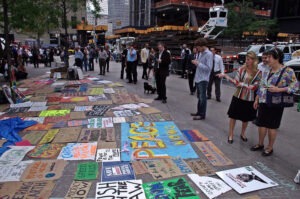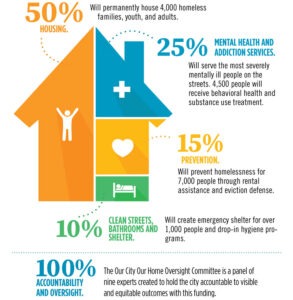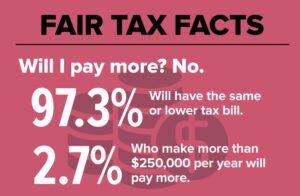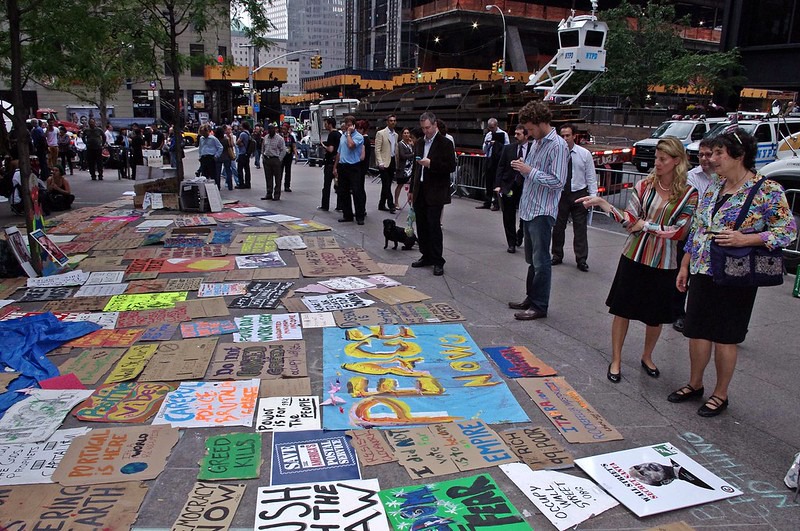November 1, 2011; Source: Stateline | Some elements of the national press have been taking the Occupy movement to task for its lack of policy-specific “demands” (although others have suggested that the lack of a list of policy demands is an asset, preventing the diverse movement’s disintegration into itemized disagreement and discord). But even the lack of specific demands from the Occupiers has begun to have an effect on public policy.
In New York State, Governor Andrew Cuomo campaigned with a pledge to end the so-called “millionaires tax” or “millionaires surcharge” (even though it applied to taxpayers with incomes as low as low as $200,000) enacted by his predecessor and the legislature in 2009 to balance the state budget. Cuomo believes that continuing the tax would drive millionaires out of state to low- or no-tax havens. He might have succeeded in ending the millionaires tax hadn’t it been for the advent of the Occupy Wall Street movement.
With OWS, the political winds have changed, and with it the vigor of some liberal advocacy groups to call for some sort of extension of the surcharge. Assembly Speaker Sheldon Silver is calling for extending the surcharge, though limited to individuals who earn $1 million or more. Silver and his supporters (labor unions and other groups) say that the extension and modification of the surcharge (scheduled to expire on December 31st) would generate $2.8 billion in the coming fiscal year when the state faces a projected $2.4 billion budget gap.
Cuomo has made his mark as governor by taking liberal and conservative positions as needed, demonstrating his independence from a Democratic Party policy orthodoxy, and winning plaudits even from Republicans despite his likely political trajectory toward a presidential run a couple of national electoral cycles from now. He has enormous popularity ratings (particularly in contrast to his hapless Democratic predecessor and the equally hapless Republican opponent he beat in the election), but the continuation of the millionaires tax also enjoys widespread public support. Will Cuomo suffer a political backlash from his position against the tax? Recently, protesters began camping out at Academy Park in Albany, in earshot of the state capitol, and named their encampment “Cuomoville”, an ominous sign if the Governor sticks to his support of letting the surcharge expire.
Sign up for our free newsletters
Subscribe to NPQ's newsletters to have our top stories delivered directly to your inbox.
By signing up, you agree to our privacy policy and terms of use, and to receive messages from NPQ and our partners.
For all the nonprofit sector advocacy campaigns—sign-on letters, “Hill” days, etc.—the Occupy movement seems to have had an impact on public policy by provoking a shift in political culture. Longlasting? Who can say, but there is no question that for the moment, the persistence of the Occupy movement has altered the public dialogue when it comes to the nation’s policy and tax treatment of “millionaires and billionaires.”—Rick Cohen













